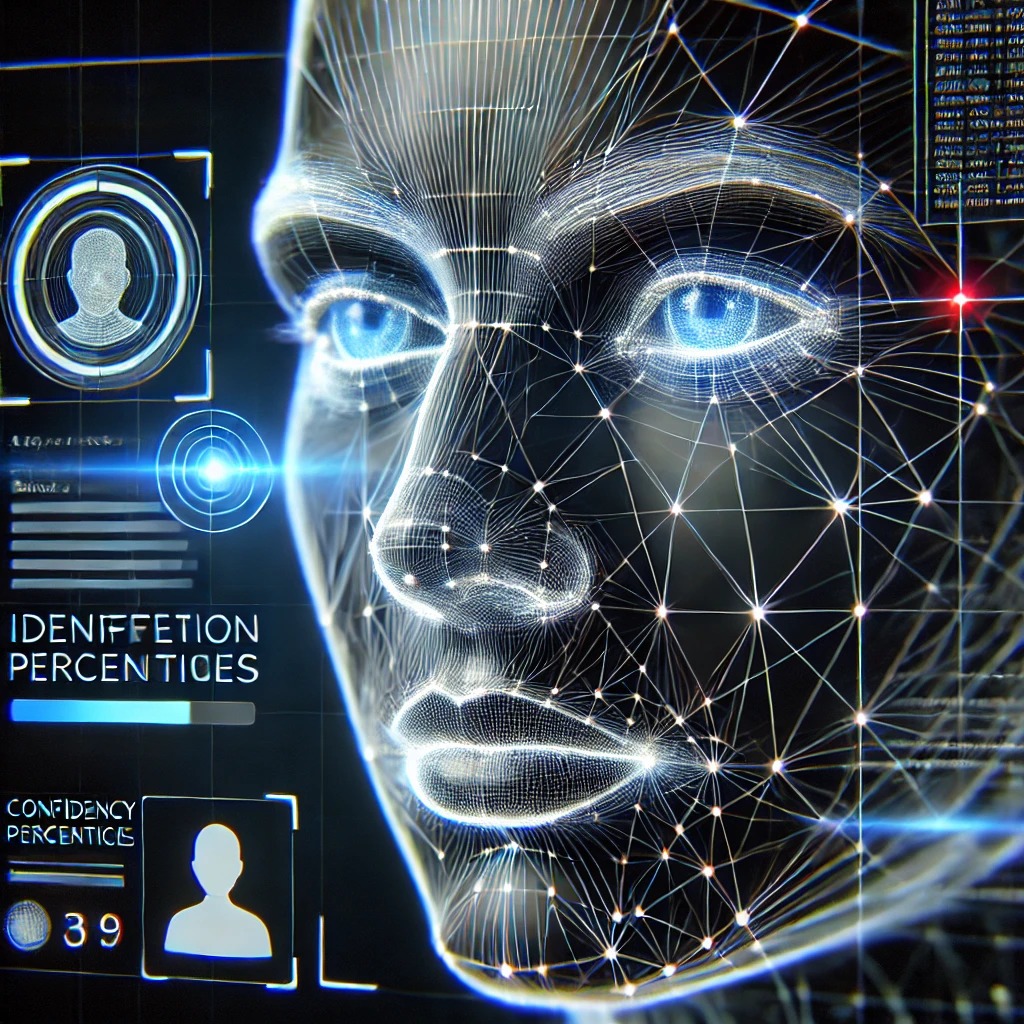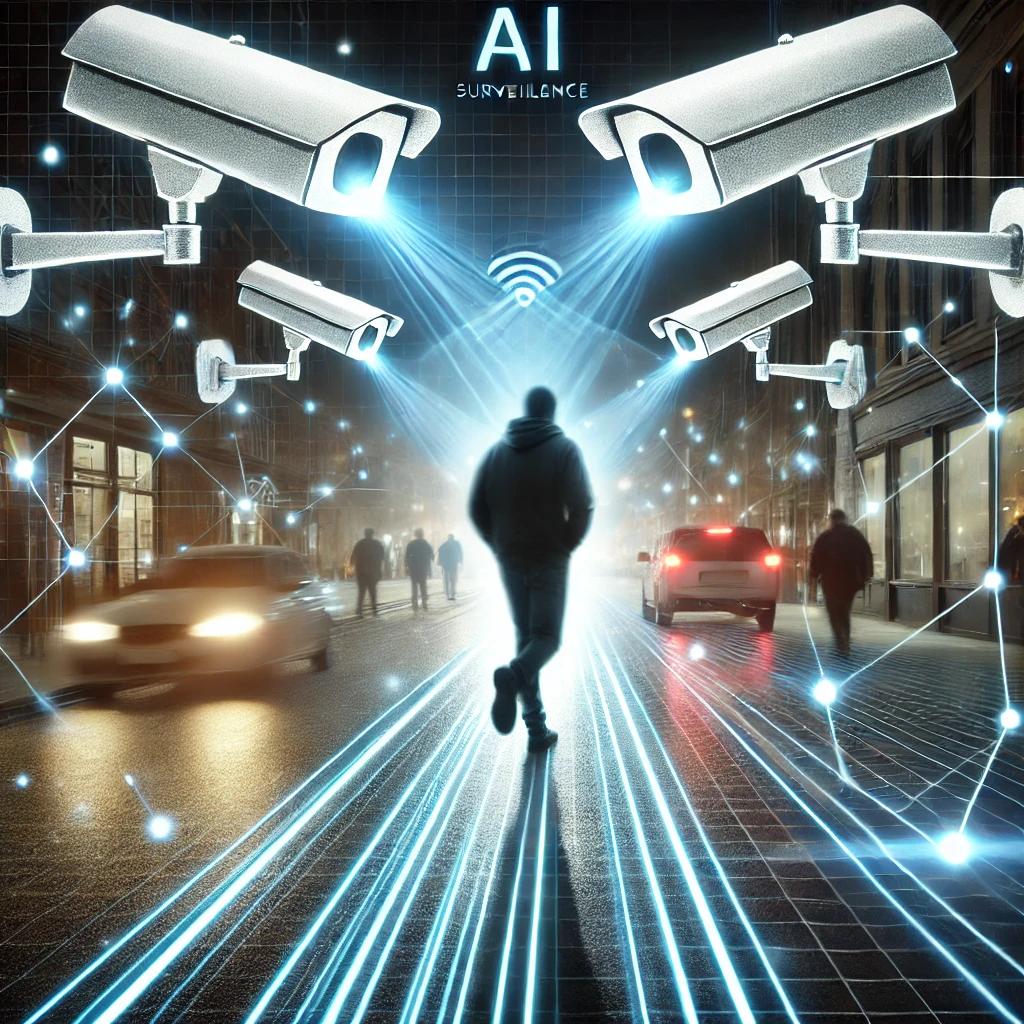In 2024, the line between privacy and surveillance is becoming increasingly blurred. As artificial intelligence (AI) continues to drive advancements in surveillance technology, the debate over personal privacy is more intense than ever before. From facial recognition systems to data-tracking algorithms, AI is now at the forefront of monitoring our daily lives. Consequently, this raises critical questions about how much privacy individuals are willing to sacrifice.

AI-Powered Surveillance: What’s Happening Now?
To begin with, AI-powered surveillance systems are no longer a concept of the future—they are actively shaping our present. Governments and corporations worldwide are utilizing these technologies for various reasons, ranging from enhancing public safety to creating more personalized customer experiences.
For instance, one of the most common applications is facial recognition technology. According to a 2023 report by Facial Recognition News, countries such as China, the United States, and the UK are increasingly deploying AI to identify individuals in real-time. Airports, law enforcement, and even retail companies use these systems to monitor movement and anticipate behavior. Similarly, corporations are harnessing data-tracking AI algorithms to collect massive amounts of information about consumers. Whether it’s tracking online behavior or purchasing habits, AI is constantly at work, analyzing personal data to forecast future actions. While many companies argue that this allows for more personalized services, it often happens without user consent, raising ethical concerns.
What’s at Stake?
Given these developments, it’s essential to examine what’s really at stake. In fact, the core issue revolves around one pivotal question: how much privacy are we willing to trade for security and convenience?
- Erosion of Personal Freedom: First and foremost, one significant concern is the loss of anonymity in public spaces. With AI-powered cameras monitoring streets and public areas, it becomes easier to track individuals without their knowledge. This omnipresent surveillance can lead to discomfort and, over time, limit personal freedom, as people may feel constantly observed.
- Bias in AI Algorithms: Additionally, AI is far from being neutral. Many facial recognition systems, for example, have been shown to reflect inherent biases, particularly along racial and gender lines. As a result, this raises the risk of wrongful identifications and arrests. A notable study by MIT Media Lab found that facial recognition software tends to misidentify people with darker skin tones at higher rates, underscoring the need for fairness and accuracy in law enforcement practices.
- Data Privacy Breaches: Moreover, the vast amount of data collected by AI systems is a major privacy concern. Once this data is stored, it becomes vulnerable to potential breaches. In recent years, high-profile data breaches have exposed the dangers of having vast quantities of personal information centralized and stored. If AI systems can track and analyze behavior, the security of that data becomes a significant question. Without proper safeguards, personal information could be exploited by hackers or malicious entities.
Legislation and Regulation: Where Do We Stand?
In response to these challenges, governments around the world are taking notice. For example, Europe’s General Data Protection Regulation (GDPR) has become a gold standard for data protection, imposing strict rules on how companies collect and use personal data. In 2024, similar efforts are gaining momentum across other regions, especially in the United States. The California Consumer Privacy Act (CCPA) is a key example of state-level privacy protection, leading the way for stricter regulations nationwide.
Nevertheless, enforcing these regulations is not always straightforward, particularly given the rapid pace of AI innovation. As AI continues to evolve and integrate into our daily lives, lawmakers are finding it difficult to regulate its use effectively without hampering technological progress.

How Can You Protect Your Privacy?
Despite these challenges, there are steps individuals can take to protect their privacy in this AI-driven surveillance age. Here are a few strategies:
- Use Privacy-Focused Tools: To start, consider using privacy-enhancing tools like DuckDuckGo, a search engine that doesn’t track user data, or virtual private networks (VPNs) to encrypt your online activity and keep it private.
- Limit Data Sharing: Furthermore, be mindful of the personal information you share online. Review the privacy settings on your social media accounts and reduce the amount of data you make publicly accessible.
- Support Pro-Privacy Policies: Finally, advocate for policies that protect individual privacy rights. Supporting legislation that regulates the misuse of AI technology in surveillance can make a real difference in how your data is handled.
The Future of AI and Privacy
Looking ahead, the future of privacy in the age of AI surveillance will depend on the choices we make today. As AI becomes more pervasive, the fight for privacy will only grow more urgent. Striking the right balance between innovation and the protection of individual freedoms is crucial.
Without a doubt, companies and governments will need to prioritize transparency in their use of AI. By ensuring that these technologies are implemented ethically and with respect for personal privacy, we can build a future where AI serves society rather than exploiting it.
In 2024, privacy is no longer just a personal issue—it has become a societal one. Moving forward, we must all decide how much privacy we are willing to compromise for the sake of convenience and security. By staying informed, making privacy-conscious choices, and supporting stronger regulations, we can help shape a future where AI works for us, not against us.
Conclusion
In conclusion, AI-powered surveillance is a double-edged sword. While it offers significant benefits in terms of security and convenience, it also brings with it serious risks to personal privacy. As we navigate this new landscape, it’s important to remain aware of how these technologies impact our lives and to take active steps to protect our personal data. With the right balance, we can harness AI’s potential while safeguarding our privacy.
Want to learn more about AI technology? Reach out to TLC Creative.


